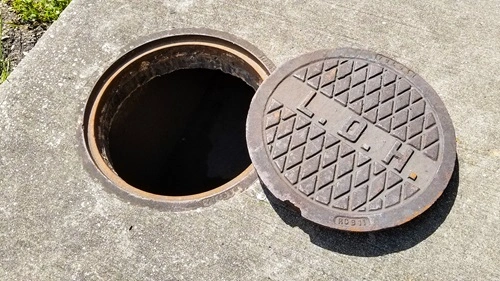Yes, in most jurisdictions across the United States, it is illegal to open a sewer cover without proper authorization. Sewer covers, also known as manhole covers, are typically maintained by municipal governments, utility companies, or private entities, and tampering with them can lead to criminal charges, fines, and even imprisonment.
Why Is Opening a Sewer Cover Illegal?
1. Public Safety Concerns
- Sewer covers protect the public from hazards such as open access to deep sewer systems, toxic gases, or flooding risks. Opening a cover without proper authorization endangers both the person tampering with it and the general public.
- Accidental falls, exposure to harmful substances, or even fatalities can occur if a sewer cover is left unsecured.
2. Infrastructure Protection
- Sewer systems are critical infrastructure for water management and waste treatment. Unauthorized access could damage pipes, create blockages, or disrupt municipal services.
- Some sewer systems also house cables or fiber-optic lines, making tampering even more problematic.
3. Environmental Risks
- Opening a sewer cover without authorization can lead to environmental contamination, such as untreated sewage spills, which violate federal and state environmental regulations.
Legal Implications of Tampering with Sewer Covers
1. Criminal Charges
- Tampering with a sewer cover is often classified as a misdemeanor or felony, depending on the jurisdiction and the intent of the individual.
- Common charges include trespassing, vandalism, or interfering with public utilities.
2. Fines and Penalties
- Fines for tampering with or opening a sewer cover can range from a few hundred to several thousand dollars. Repeat offenses or causing damage can result in higher penalties.
- For example, in California, tampering with public utility equipment may lead to penalties under California Penal Code Section 498.
3. Imprisonment
Severe cases, such as those resulting in public harm or extensive property damage, could lead to imprisonment.
4. Civil Liability
Individuals who tamper with sewer covers may also face lawsuits for damages caused by their actions, such as injury to others or property damage.
Who Is Authorized to Open Sewer Covers?
1. Municipal Workers and Contractors
Authorized personnel such as city or county employees, or contracted utility workers, are trained to safely access sewer systems.
2. Utility Companies
Utility companies responsible for water, sewage, or electrical services may have designated workers who are authorized to access manholes.
3. Emergency Situations
In rare emergency scenarios, private individuals might open a sewer cover to prevent imminent harm, but such actions must be immediately reported to authorities to avoid legal repercussions.
Consequences of Unauthorized Access
1. Accidents and Injuries
Sewer systems can be hazardous, containing toxic gases like methane or hydrogen sulfide. Unauthorized access increases the risk of asphyxiation or injury.
2. Community Disruption
Open manholes can disrupt traffic and pose significant hazards to pedestrians and vehicles.
3. Costly Repairs
Damage caused by unauthorized tampering can lead to costly repairs, which may be charged to the offending party.
Common FAQs
Q1. Is it ever legal to open a sewer cover?
Ans: Yes, but only if you are an authorized municipal worker, utility contractor, or in an extreme emergency that you report immediately to authorities.
Q2. What happens if I accidentally open a sewer cover?
Ans: Report the incident to your local public works department or utility company immediately. Failure to do so could lead to legal consequences.
Q3. Are there exceptions for emergencies?
Ans: In life-threatening emergencies, opening a sewer cover might be considered justified, but you must notify the appropriate authorities as soon as possible.
Q4. Can children be penalized for opening sewer covers?
Ans: Yes, but penalties for minors may be less severe and handled differently, such as through juvenile courts or community service requirements.
Q5. What should I do if I see an open sewer cover?
Ans: Notify your local public works department or utility company immediately. Do not attempt to close or secure the cover yourself.
Q6. Are there signs or locks on sewer covers?
Ans: Many cities use locks, specialized tools, or markings to secure and identify sewer covers, making them harder to open without proper equipment.
Conclusion
Opening a sewer cover without authorization is illegal in the United States due to significant safety, environmental, and infrastructure concerns. Authorized personnel are trained to handle such tasks safely, and anyone who tampers with sewer covers may face fines, criminal charges, or civil liability. Public awareness about the hazards and legal ramifications can help prevent unauthorized tampering and ensure community safety.


